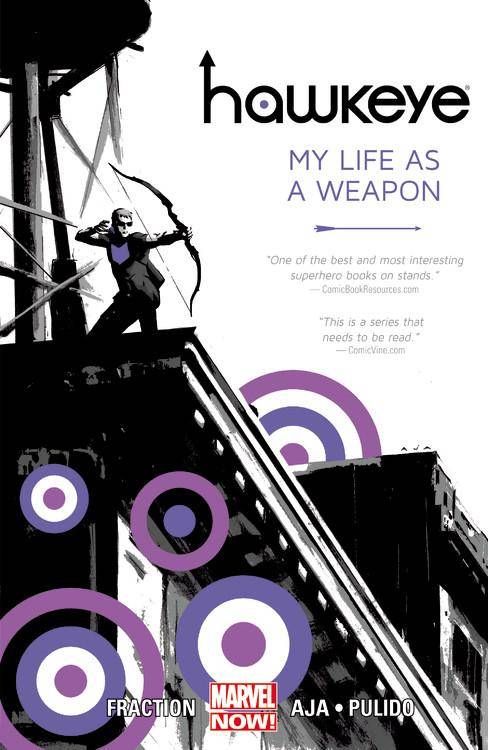
Riot Round-Up: The Best Books We Read in November
We asked our contributors to share the best book they read this month. We’ve got fiction, nonfiction, YA, memoir, and more. Some are old, some are new, and some aren’t even out yet. Enjoy, and please tell us about the highlight of your reading month in the comments.
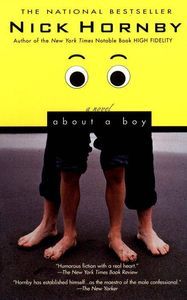
It had been a while since I had revisited this old favourite, but I put it on a reading list for one of my courses this semester. Not only did I remember how much I love the novel (and the film adaptation), but I had the pleasure of sharing it with a class who really connected to Will and Marcus. One of the best things about teaching is when a class clicks with a personal favourite, and it’s been a genuine delight revisiting this world with my students. Hornby is funny here, but I also think this is Hornby at his heartfelt best. If you’ve never read this one, do — and if you’ve never read Hornby, I think this is as good an introduction as any to his work. And I have to share my favourite bit because it’s SO GOOD:
“She chose ‘Killing Me Softly With His Song’. There was nothing he could do but stand next to her and let the odd half-syllable of lyric crawl choking out of his mouth. ‘Smile… While… Boy… Ling…’ He knew, of course he knew, that the song couldn’t last forever, that the evening couldn’t last forever, that he would soon be home tucked up in bed, that singing round the piano with a depressive hippy and her weirdo son wouldn’t kill him. He knew all that, but he didn’t feel it.”
-Brenna Clarke Gray

Fans of Fannie Flagg (author of Fried Green Tomatoes at the Whistle Stop Cafe, among others) will welcome her newest book with open arms. Sookie Poole, a dignified Alabama lady of 59 years (or so she thinks) has a pretty nice life, even though she sometimes feels like she’s never really accomplished anything besides raising kids, keeping a nice house for her husband, and watching out for her eccentric-yet-snooty mother Lenore. With just one certified letter from the Texas Department of Health, though, Sookie learns that she is NOT in fact who she thought she was (and, to her dismay, that she’s actually 60 years old). Can Sookie found out the truth about her past? Is it too late for an “old” Southern lady to take chances and do something special with her life? To prevent spoilers, I won’t go too much more deeply into the plot, but the book spans several decades and intricately weaves stories together to create a rich, satisfying family tapestry (and also manages to highlight a part of WWII history that is not discussed as often as it should be). In typical Flagg fashion, this story is touching, funny, full of “girl power,” and just suspenseful enough to keep you turning pages late into the night.
–Rita Meade
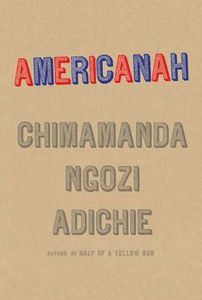
This is a substantial novel in just about every sense of the word. It’s about race, the immigrant experience, American hypocrisy (we live in McMansions but crow about our barely useful charity work), and lost love. And it’s about 500 pages. The story is of a Nigerian immigrant named Ifemelu who comes to America as a college student, struggles to find her way, does, and then begins a blog examining in a clear-eyed, no-bullshit fashion the foibles of race in America. But it’s a fast-moving, lucidly written novel — one, if you’re like me, you’ll plow through in just a few sittings. It’s one of those rare books I wish were required reading. Empathy, man. It makes the world go ‘round.
-Greg Zimmerman
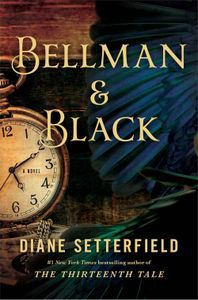
It has been a long wait for a new work by Diane Setterfield, but the wait was worth it. Bellman & Black is not as intricate and well-developed as The Thirteenth Tale, but it is a delightfully spooky story. It has the feel of a Victorian ghost story, with a fair amount of death and heartbreak. There is money, power, prestige, a touch of madness, and something that resembles a curse. Bellman is convinced that his pain is the result of either a sin he committed as a child or a deal that he makes with Death himself. Either way, it’s damn near Dickensian. And I enjoyed every page.
-Cassandra Neace
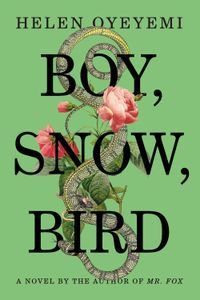
There are so many books on this month’s list that I can enthusiastically endorse: The Goldfinch, The Martian, Life After Life, The Empathy Exams, Hyperbole and a Half – these books are so fantastic! And I am super-excited to share my pick, because I think Helen Oyeyemi is a freaking genius. Her books are so bizarre and brilliant. They hold me in thrall. Take her newest one, Boy, Snow, Bird: A young woman in NYC named Boy escapes her abusive father and flees to Massachusetts, where she finds love and a family with a widower and his young daughter, Snow. Sounds lovely, right? Except Oyeyemi wrote it, so there’s secrets upon secrets and an underlying sinisterness to the love, and vice versa. And holy cats – the ending!!! Didn’t see that coming. Which is the best way to reach the end of a book! Write this one down somewhere you’ll remember – like your forehead – because you don’t want to miss it.
–Liberty Hardy
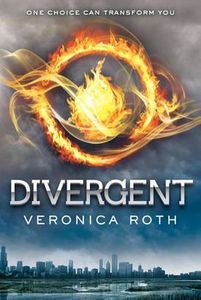
I’m a little late to the party on this one, mostly because my YA reading habits are erratic at best. This book is nothing particularly unique. It doesn’t send some new and compelling message about society or the nature of humankind, or what it means to be an individual. It’s just great fun for those who enjoy Hunger Gamesey dystopian stuff. Three cheers for fun reads!
-Kate Scott
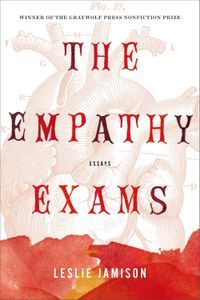
I’m going to try really hard not to gush, but I know I’ll fail. This book melted my brain and my heart several times, but I particularly loved, well, every single essay. Okay, okay. I particularly loved “Grand Unified Theory of Female Pain” and “Lost Boys.” Jamison is at once journalistic and intimate, and there were moments in “Grand Unified Theory of Female Pain” that actually made me feel like my heart would overflow with the kinship I felt to her, especially when she discusses her relationship to music as a young woman, which echoed my own almost exactly. Did I gush? Oh well, it was inevitable.
-Jeanette Solomon
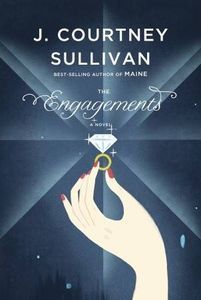
Like many books, I wouldn’t have picked this up without the recommendation of other Rioters (thanks, Amanda!) but I’m so glad I did. I never got to read Maine, but now I know that I need to, because Sullivan is the kind of writer that’s my jam because of her talent with characters. Her characters are all completely different–in this one, spanning generations–and all of them are full of faults, and not all of them are relatable to me, yet I still love reading about them, and want to read more and more. Strangers connected by the history of one engagement ring, the range spreads from working class Boston to musicians in Paris, along with some interesting history about the diamond ring along the way.
-Jill Guccini
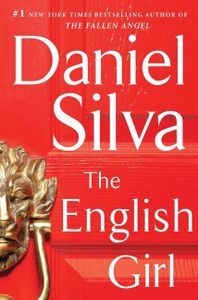
This is my first novel by Daniel Silva, and I am absolutely fangirling him now. Not only is The English Girl unputdownable, it’s a spy thriller that’s actually about something: second chances, resurrection, and identity. Gabriel Allon, an infamous Israeli intelligence officer, is pulled out of retirement when a friend in MI-5 prevails upon him to rescue Madeline Hart. Kidnapped off the island of Corsica while on holiday, Hart is a rising political star in the UK and the Prime Minister’s secret mistress. Silva’s writing style is witty and lyrical, and the character of Gabriel Allon is brilliantly drawn and complex (after 13 novels, he should be). Gabriel is smart and clever, as is the mystery of what happened to Hart; but what I really loved about The English Girl was how emotional it was. Gabriel may be a trained assassin, but he’s not cold-blooded; and he and many of the other characters in the novel make decisions based on fear, anger, spite, love, greed, and friendship. Not something I’d expect from a spy novel; but spy novel or not, it’s the emotional lives of the characters that made me care about how everything would shake out. The English Girl impressed me with both Silva’s storytelling and writing chops, and I’ll definitely be digging into his backlist in 2014.
-Tasha Brandstatter

I admit I was skeptical of this YA novel by Matthew Quick. The novel takes place on Leonard’s 18th birthday, as he goes about the process of saying goodbye to his only four friends before he kills his former best friend and then himself. Though Leonard’s narrative could feel formulaic and his action straight out of the DSM-IV, his voice is so perfectly rendered. His teenage-ness is evident in every sarcastic quip and painfully desperate plea for help (even if the plea is only in his head) that my heart was torn out for this kid. Quick also keeps this from being a purely academic examination of suicide by not revealing immediately why Leonard wants to kill his former best friend. As the reader, I felt like I was listening to Leonard tell me his story, and I had to wait for him to trust me before he would reveal this wound. I was holding my breath until the very end.
-Rachel Manwill
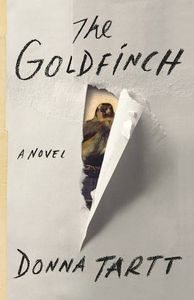
The first half of The Goldfinch is one of the very best books I’ve read all year. Vivid and engrossing, the first half of Tartt’s novel charts the pained, confused, listlessly ecstatic adolescence of Theo Decker in the years after his mother is killed in a bombing. With exquisite attention to physical details and their emotional resonances–”[t]he lock tumbled with a solid clunk, instinctive, blood-deep in its rightness”–Tartt’s writing is gorgeous, somehow lush and spare at the same time. It’s certainly not succinct, though; the whole novel comes in at a whopping 750+ pages. And while the second half is good, very good, when it leaves Theo’s adolescence, the book loses some of its steam, loses the magical thinking of childhood as the sweet, sad motor for its plot. But even so, the novel as a whole is lovely and definitely earns a spot on this list.
-Derek Attig
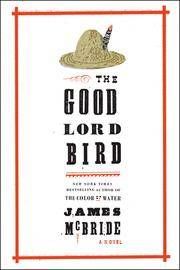
Normally when someone tells me that a novel is “as good as “Twain,” or “the next Twain,” I want to kick and lash out. This is how I usually react to things I don’t understand. But in case you haven’t heard, allow me to be the first to say that The Good Lord Bird by James McBride is as good as anything I have ever read, including anything by my hero (and yours, I hope) Mark Twain.
The book starts quickly, as young Henry winds up traveling with the Bible-quoting, never-sleeping, abolitionist John Brown, whose ill-fated quest to free the slaves will result in some of the best writing I’ve ever read. Henry gets mistaken for a girl, gets named “Little Onion,” and narrates the misadventures to follow in my favorite literary voice since True Grit’s Mattie Ross.
-Josh Hanagarne
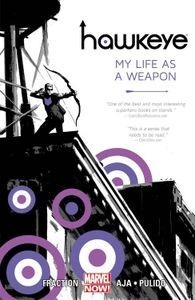
Bro, am I allowed to put a comic book in here? Does that break the rules, bro? Oh well, even if it does, I don’t care. When it comes to rules, much like Hawkeye, I don’t care. Bro.
Reading this hardcover collected edition of My Life as a Weapon (which was a New York Times bestseller, btw), was the result of the constant pestering of friends from around my local comic book shop. I was resistant. I love comics, but I’m more of a “give me a story that begins and ends” kind of guy. But, I gave in, and my goodness, this is the best comic book I’ve ever read.
The series introduces readers to Hawkeye as an average guy, trying to enjoy some down time from his life with the Avengers. What’s it like for a guy that’s just trying to get by, hang out with his neighbors during rooftop BBQs, and maybe watch a movie… with a little help from Tony Stark and his untangling component cable prowess? Seriously. He calls up Iron Man to help him with a VCR.
Hilarious and often heartwarming, it’s nothing like I’ve ever read in the world of comics. Also, all that “bro” nonsense is a reference to the book. Pick it up. You’ll like it. Bro.
–Eric Smith
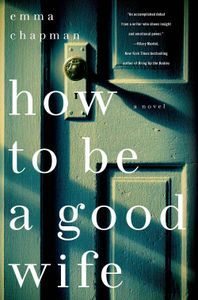
I picked up this slim ARC because Hilary Mantel has a blurb on the cover, calling it “a highly competent, creepy little chiller” and a “disconcerting story about the nature of feminine experience” and that about sums it up! Marta is a bored and nervous housewife who has spent years following the stifling advice in a manual her mother-in-law gave her called How To Be a Good Wife. On a whim, she stops taking her medication and begins having disturbing hallucinations- or maybe flashbacks- that lead her to a WHOA-inducing revelation about her life and her husband. While the thriller portion of the book is fine, it’s really what it’s saying about the idea of being a “good wife” that makes this book a keeper.
-Amanda Nelson
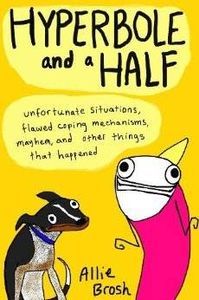
You may know Allie Brosh as the creator of the “Alot” monster or the “Clean all the things!” meme, or, more recently, from her candid writing about depression and anxiety. I love her crudely hewn comics, and am so psyched that they’re finally here in book form. Lately I’ve been getting some help for my own anxiety, and Hyperbole and a Half was there for me at just the right time, like a hilarious mirror I could hold up to myself and laugh until tears streamed down my face, never fully knowing whether it was because it was funny or because it was true. The first chapter alone has swearing at a two year old, time travel, dogs, crayons, and gratuitous nudity. It’s not only hysterical as hell, but also angsty and honest and dark, and I dare you to flip through a copy in the checkout line at the bookstore without taking it home with you.
–Rachel Smalter Hall
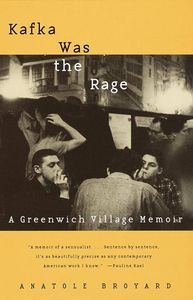
This is less a definitive portrait of an era and more the cocktail party anecdotes of an expert storyteller. As Bayard reminisces about his sexual conquests and intellectual pursuits (or is it intellectual conquests and sexual pursuits?) he shows that in addition to being a skilled raconteur, he is an early master of the humblebrag. My favorite: “I’ve always been rather literal-minded and it’s one of the things I’m ashamed of, as some men are ashamed of the size of their penis.” Despite this, the book is a charming, if narrow, window into the literary scene in post-WWII Greenwich Village. I always enjoy reading about fledgling artist communities, especially when they include such earnest statements as, “If it hadn’t been for books, we’d have been completely at the mercy of sex.” The whole thing shimmers with youthful grandiosity and naivete, but damn it f it’s not fun getting swept up by its sense of urgency.
-Minh Le
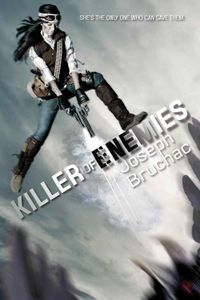
Dystopians are not my thing, but I loved Bruchac’s take on the genre. A mysterious cloud knocked out all electrical power in the book’s future-earth, which means that–among other things–the genetically modified monster beasts the upper class used to keep as pets are now running loose. Lozen is particularly good at fighting the monsters (top-notch hunting skills, but also a touch of ESP), but she’d much rather keep her family safe and escape from the prison where they live. Bruchac, as always, does a great job bringing Native culture into the story (Lozen and her family are Chiricahua Apache), and the subtle romance that’s not at the center of the plot is just right.
-Sarah Rettger
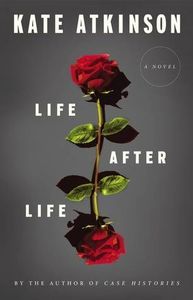
People have been telling me to read Life After Life since before it came out (#booksellerproblems) and I finally got around to it. 100 pages in, all I could think was: How is Atkinson going to pull this off? It’s the story of Ursula Todd’s life — except she keeps living it over, and over, and over again. Can she really change the course of history and keep World War II from happening? I’m still not sure what the answer is, because the final chapter is nothing if not ambiguous. If you like big questions, structural hijinks, and/or historical fiction, give it a whirl. And then help me decide: is it the most pessimistic, or optimistic, book ever?
–Jenn Northington
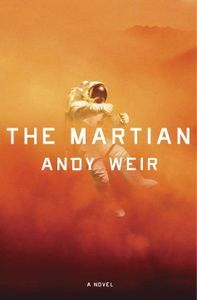
“You should read The Martian,” Cassandra said to me. “I think you’d like it,” she said. So I went and got a copy of it, opened it…and that was it for me sleeping for several nights. The Martian is the story of Mark Watney, a member of one of the missions to Mars in the near-future. The mission goes horribly wrong and Mark is impaled with a piece of metal and seemingly dead, so the rest of his team makes their escape and begins their long return flight to earth…but Mark wasn’t dead. He survives, and now he’s stranded on Mars with nothing to survive except the stuff the mission left behind, and his resourcefulness.
The book is written with a light, easy style, a very conversational tone, and that does nothing to lessen the insane intensity of the story. If it were a movie, I would’ve been on the edge of my seat. The story of his efforts to survive are intense reading, but they’re also fascinating, because this book is a work of hard science fiction (a field that raised me, and which I’m excited to be back reading). Everything is logical and carefully explored and worked out, handled very realistically. His attempts at survival make good sense, and his limitations are what they should be. I finished reading it at three in the morning and it left me so hyper from the tension, I wound up pacing the house, flipping through other books for ages.
Go. Read. Have a blast.
–Peter Damien
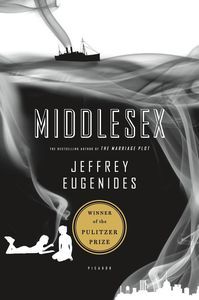
I’m a bit late to the Eugenides game, but oh boy am I glad I finally got my backside in gear and jumped in. In Middlesex, Eugenides tells the story of the hermaphrodite Calliope Stephanides in her/his own voice, developing it against the backdrop of war, immigration, incest, and American assimilationism. Cal(lie)’s story reinforces the truth that none of us is an island, able to create a life out of nothing but our own desires. Rather, we are all caught between our choices and our chromosomes. The choices our great-great-grandparents made, the mistakes of our parents: all of these influence the people we become. It is ultimately up to us, though, to decide what to do with what we are given.
Reading this book was like riding on a very loopy roller-coaster, since at times it raises you high above the earth to glimpse a large swath of history and then swoops you down, close to the ground, with detailed musings on love, desire, and identity. I recently acquired The Marriage Plot, Eugenides’s latest novel, and am chomping at the bit to read it. So much to read, so little tiiiiime!
-Rachel Cordasco
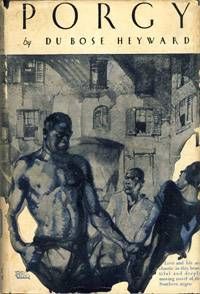
A ‘why I love the internet’ story: Porgy and Bess, the musical, is in town and I went to see it this past weekend. I was eagerly anticipating finally seeing the action behind the music – this is after all the musical that gave us ‘Summertime’, and it’s many, many recordings and remixes. Sadly, the 2.5 hour musical didn’t quite piece the story together for me. I had no idea why these two characters fell in love with each other, and had no sympathy for junkie Bess, who is pretty much at the center of every bad thing that happens in the narrative. So I did a little research and discovered that the musical is the Gershwin’s adaptation of the stage play written by DuBose’s wife Dorothy Heyward, which is itself adapted from DuBose’s novel. Which I found online, and began to read. And yeah, the novel paints a more detailed picture of this South Carolina community of black folks in the early 1920’s, getting to the heart of crippled Porgy (based on real-life meanine Goat-Cart-Sam), the beaten-down-by-life Bess, what they bring to each other, and how they tear each other apart. It’s still a pretty depressing story, but now I feel like I have some context for all the hype. Bottom line: the book is always best for setting the story straight.
–Alison Peters
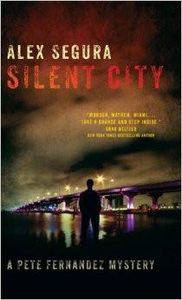
Pete Fernandez is a former rising star sports journalist who now spends his days as a mostly drunk copy editor at the Miami Times. A random missing persons case haphazardly falls into Pete’s lap and he’s too stubborn to let someone else handle it, even though he has no clue what he’s doing. I think that’s what I liked most about Silent City. Instead of a down-on-his-luck PI who somehow manages to be a step ahead of everything, Pete stumbles to try and keep up. Surprisingly charming and doggedly determined, he’s a little bit Harry Dresden and a lot Clint Barton from Matt Fraction’s Hawkeye. Seguara writes some fantastic action sequences and keeps the suspense humming throughout the story. It’s book you find yourself needing to finish, just so you can see if Pete manages to survive the mess he’s pulled himself into.
-Ali Colluccio
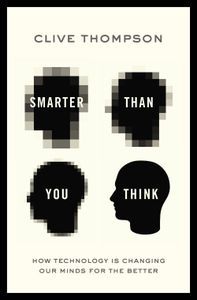
Fellow Rioter Rebecca raved about this book, and she was right to do so. Thompson’s book explores the value we as humans have added to our lives through our development and use of technology. It’s not about how technology has changed or rewired our brains, but instead, it’s about how we’ve molded our lives with technology. I was particularly taken with the chapter about literacies and how we’ve moved from being passive consumers of information as readers and to being creators of information as writers and how the knowledge of having an audience has strengthened our ability to do so. This should be a must-read for anyone who has spent a few minutes hanging out on the internet and wondering whether that time writing, reading, playing video games, or watching YouTube videos is worth it (spoiler: it is).
–Kelly Jensen
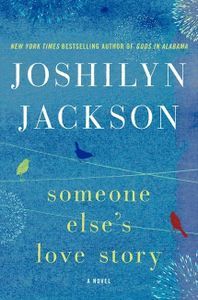
I was a few pages into this book when I turned to my fiancé and said: “This author just did something insane. This book will be great or terrible.” And guess what? It’s great. Jackson manages to weave a love story around a plucky Southern single mom, a brilliant Autistic scientist, a badass lady lawyer, a precocious toddler, a lovesick poet, and a gas station robbery without being cheesy or excessively saccharine. This book also contains one of the most marvelous “you go, girl” moments I’ve ever witnessed. If I ever meet this heroine, the first thing I’m going to do is fist-bump her. I’m not 100% sure all of the science involved is legit, but I didn’t mind. Someone Else’s Love Story is on the fluffy side, but it’s excellent fluff.
-Becky Cole
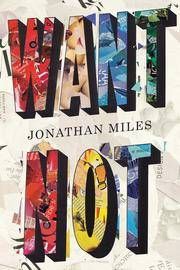
It sounds like the setup to a joke: What do a freegan couple, a disillusioned linguist, and a man who has made his fortune buying and collecting junk debt have in common? Quite a lot, it turns out, insofar as they are linked by that which defines all of us: desire. Through the lens of three narratives that just barely–but powerfully–intersect, Jonathan Miles explores the causes and consequences of waste in American society and the ways in which waste is inextricable from its evil twin, Want. This is a novel with a strong point of view, but it’s far from a polemic. Miles is as funny as he is observant, and he allows us to laugh at ourselves as he forces us to look at some of the more unattractive aspects of humanity. This is a hard novel to pitch in a few sentences, but it’s an easy one to recommend. Simply put, it’s one of the best of the year.
-Rebecca Joines Schinsky
Your turn, readers. What’s the best book you read last month?
________________________
Sign up for our newsletter to have the best of Book Riot delivered straight to your inbox every week. No spam. We promise.
To keep up with Book Riot on a daily basis, follow us on Twitter, like us on Facebook, and subscribe to the Book Riot podcast in iTunes or via RSS. So much bookish goodness–all day, every day.
















